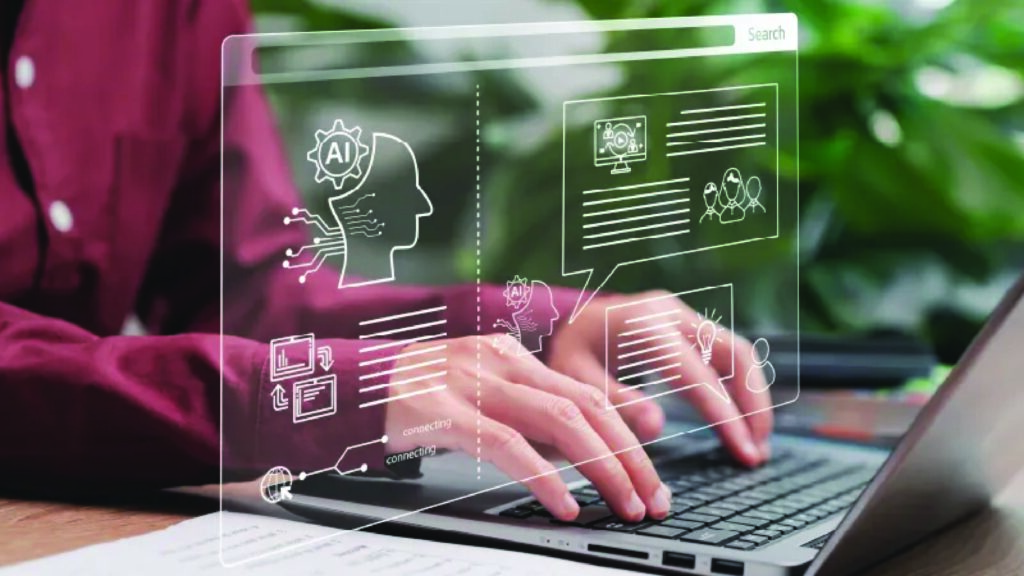Artificial Intelligence is transforming classrooms by automating grading, personalizing learning, and supporting teachers with intelligent tools. These systems can analyze student data, adapt lessons to individual needs, and even automate tasks like grading. AI helps create personalized learning experiences that improve student outcomes.
Imagine a classroom where every student has a personal tutor that never gets tired. With AI in education, this idea is becoming a reality. Smart tools are changing how we learn, making education more exciting and easier to access.
These tools save time for teachers and help students learn at their own pace. AI is also used to predict learning gaps and suggest improvements.
Personalized Learning Experiences
Artificial Intelligence is transforming the education sector by enabling personalized learning experiences for students. AI-driven platforms analyze individual learning styles, preferences, and progress, tailoring lessons and resources to meet specific needs. This allows students to learn at their own pace, enhancing understanding and retention.
With AI, educators can better identify students who need extra support and those ready for advanced topics. Adaptive learning systems, like intelligent tutoring, use real-time feedback to adjust difficulty levels, making learning more effective and engaging for diverse learners.
What is Personalized Learning in Education?
It allows learners to move at their own pace and focus on areas they find challenging. Artificial Intelligence (AI) helps make this possible by analyzing student data. This data includes learning styles, progress, and strengths.

Benefits of AI-Powered Personalized Learning
- Customized Lessons: AI creates lesson plans based on each student’s learning pace and preferences.
- Real-Time Feedback: Students receive immediate feedback, helping them correct mistakes quickly.
- Learning Anytime: AI tools support learning beyond the classroom through apps and platforms.
- Teacher Support: AI handles routine tasks, allowing teachers to focus on individual student growth.
AI Tools That Enhance Personalized Learning
- Learning Management Systems (LMS): Platforms like Google Classroom use AI to track progress.
- Chatbots: These help answer students’ questions anytime, promoting self-learning.
- Adaptive Learning Software: Tools such as DreamBox or Khan Academy adjust content based on performance.
- Virtual Tutors: AI tutors guide students through difficult topics with extra help.
- Speech-to-Text Tools: These assist students who struggle with writing by converting speech into text.
Challenges and Considerations
- Privacy Concerns: Collecting student data raises issues about how it’s stored and used.
- Access to Technology: Not all students have equal access to AI tools or devices.
- Teacher Training: Educators need training to effectively use AI in the classroom.
- Balance with Human Interaction: Relying too much on AI may reduce valuable face-to-face learning.
Intelligent Automation for Teachers
AI in EdTech is also streamlining administrative and teaching tasks for educators. Automated grading systems, attendance tracking, and even content creation tools reduce workload, allowing teachers to focus more on student interaction and instructional design. These tools can handle repetitive tasks quickly and with high accuracy.
Moreover, AI-powered analytics can provide teachers with insights into classroom performance and student behavior. This helps in early intervention strategies and personalized teaching plans, improving both teaching efficiency and student outcomes.
Benefits of Automation for Teachers
- Reduces time spent on repetitive tasks like grading and attendance
- Helps plan lessons by analyzing student performance data
- Supports classroom management with smart scheduling tools
- Allows more time for one-on-one student interaction
AI Tools in the Modern Classroom
AI-powered tools are making classrooms smarter and more efficient. These tools can assist in language translation, reading assistance, and content recommendation. With automation, the teaching process becomes more engaging and less stressful.
Key Ways AI Automates Teaching Tasks
- Grading assignments automatically
- Tracking attendance digitally
- Creating customized quizzes for students
- Analyzing learning data to improve teaching strategies
- Scheduling reminders and homework alerts
Enhancing Accessibility and Inclusivity
AI technologies are playing a significant role in making education more inclusive and accessible. Tools like speech-to-text, real-time translation, and AI-driven sign language interpreters help students with disabilities or language barriers to participate more effectively in learning environments.
Additionally, AI enables 24/7 support through virtual tutors and chatbots, ensuring learners can access help anytime. This continuous support system reduces dependency on traditional class timings and offers equal opportunities for students in remote or underserved areas.
How AI Promotes Inclusive Classrooms
- AI enables equal access to learning materials regardless of language, background, or ability.
- Intelligent tutoring systems provide one-on-one support for struggling students.
- Educators can use AI insights to identify and support at-risk learners early.
Steps AI Takes to Improve Accessibility
- Assessment – AI assesses student needs using data analysis and performance tracking.
- Adaptation – Content and assessments are adapted to match the student’s learning level.
- Support – Assistive technologies offer real-time help and guidance.
- Feedback – AI provides instant feedback to both students and teachers for improvement.
Conclusion
Artificial Intelligence is revolutionizing the education landscape by personalizing learning, supporting teachers, and expanding access for all students. It not only optimizes learning experiences but also ensures that education becomes more inclusive and efficient in addressing diverse student needs.
As AI technology continues to evolve, its integration into education will likely deepen, offering smarter, more responsive, and more equitable learning solutions. Embracing AI in EdTech today paves the way for a more adaptive and future-ready educational ecosystem.
